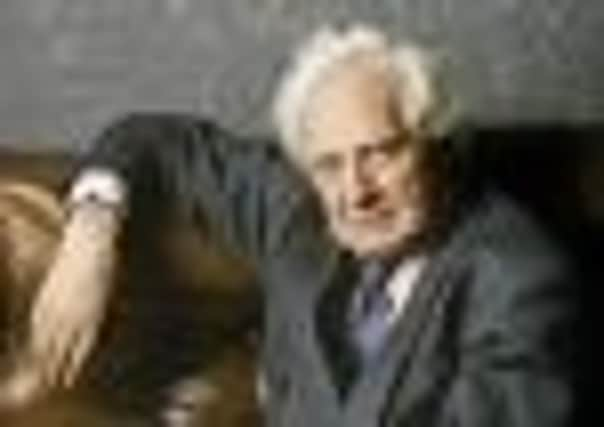Book review: New Selected Journals 1939-1995 by Stephen Spender


New Selected Journals 1939-1995
by Stephen Spender, edited by Lara Feigel and John Sutherland
Faber, 816pp, £45
They still contained plenty of self-humiliation, nonetheless. There was Spender’s repeated confession that his heart gave a jump every time he saw his name in print. There was the extraordinary entry, perhaps the definitive Spender text, in which he described farting loudly in the street in Covent Garden after going to the opera. “Some boys and girls, rather charming, whom I had scarcely noticed, overheard me, or it, and started cheering. In the darkness I was more amused than embarrassed. Then a self-important thought came into my mind. Supposing that they knew that this old man walking along Long Acre and farting was Stephen Spender? What would they think?”
Advertisement
Hide AdAdvertisement
Hide AdSadly, this new edition deletes this classic entry, even though the selection is much extended, at 792 pages as compared to 510. But then it not only takes in the last 12 years of Spender’s life, it often substantially alters the text where the editions do overlap. Thus, for example, in an entry from 1979, Spender broods about WH Auden having told him, when they were young: “You will always be a poet because you will always be humiliated.” In the 1985 edition, Spender cheers himself up by claiming that Auden nevertheless “came to be slightly jealous of me for reasons not indeed to do with talent or success but because I had a family”. The new edition puts it a little differently: “To be totally honest now, I should ask whether Auden was not a bit envious of me because I had a large penis.”
It’s a theme to which he returns in remembering another derisive friend, Cyril Connolly. Connolly liked to act out camp charades about certain gay acquaintances with tiny penises. “Of course, such a dialogue cannot but raise in one’s mind the question whether Cyril may not have had some doubt about his own equipment,” Spender says, years after Connolly’s death, presumably still proud of his continued pre-eminence in this arena at least.
The most revealing additions are those describing Spender’s late-life affair with an American biology student, Bryan Obst – “I am 70 and he is 22” – for Spender was never honest about his sexuality during his lifetime.
In one dreadful entry, he describes being caught out in this by his wife, Natasha, when they were in Nashville together: “I did the awful thing which was to telephone B[ryan] when she was in the apartment, saying some very loving things to him. The telephone was actually two rooms away from our bedroom in which she was lying down. I completely failed to realise that the air-conditioning pipe or passage conveys all sound from one bedroom to the other in this apartment. When I went into the bedroom and she was crying I did not realise that she had overheard my side of our conversation.”
As before, Spender’s life is a round of parties, luncheons, speeches and conferences, and he meets many famous and interesting people – Morandi, Stravinsky – but he simply is not a good enough writer or sufficiently sharp observer of others to make these encounters rewarding.
The abjections continue to the very end. In April 1995, he devotes an entry to a report in a Sunday paper that in a war-time broadcast Cyril Connolly (again) had described “his friend S.S. as an ‘indifferent poet with outstanding natural clumsiness of mind and a very bad ear’. S. was naturally miffed; but Cyril wrote to assure me that his remarks were ‘only for India’!” Spender pathetically records that remembering this long past snub “keeps me awake long into the night”. He died just three months later.
“To see him fumbling with our rich and delicate language is to experience all the horror of seeing a Sèvres vase in the hands of a chimpanzee,” said Evelyn Waugh, reviewing Spender’s autobiography back in 1951. Unkind but correct, just as Virginia Woolf was when, in 1933, she predicted in a letter Spender would “pan out in 10 years a prodigious bore”, another snub he humiliatingly transmits himself. It is particularly a shame that, mired in his talentless egotism, Spender shows so little appreciation here of the garden that Natasha Spender (who died in 2010) lovingly created at their house in France, beautifully recorded in An English Garden in Provence, a book much more to be treasured than any of her husband’s productions.